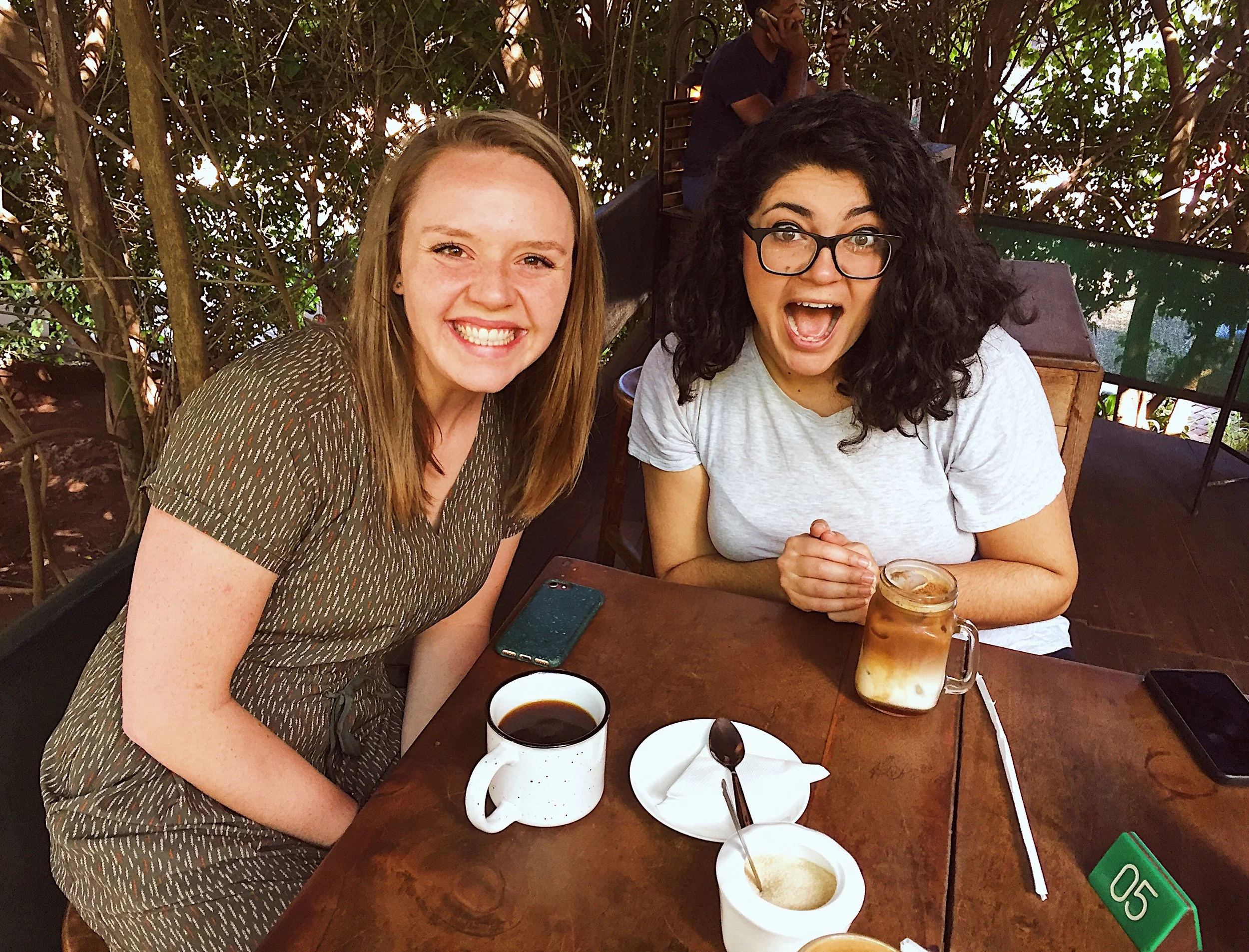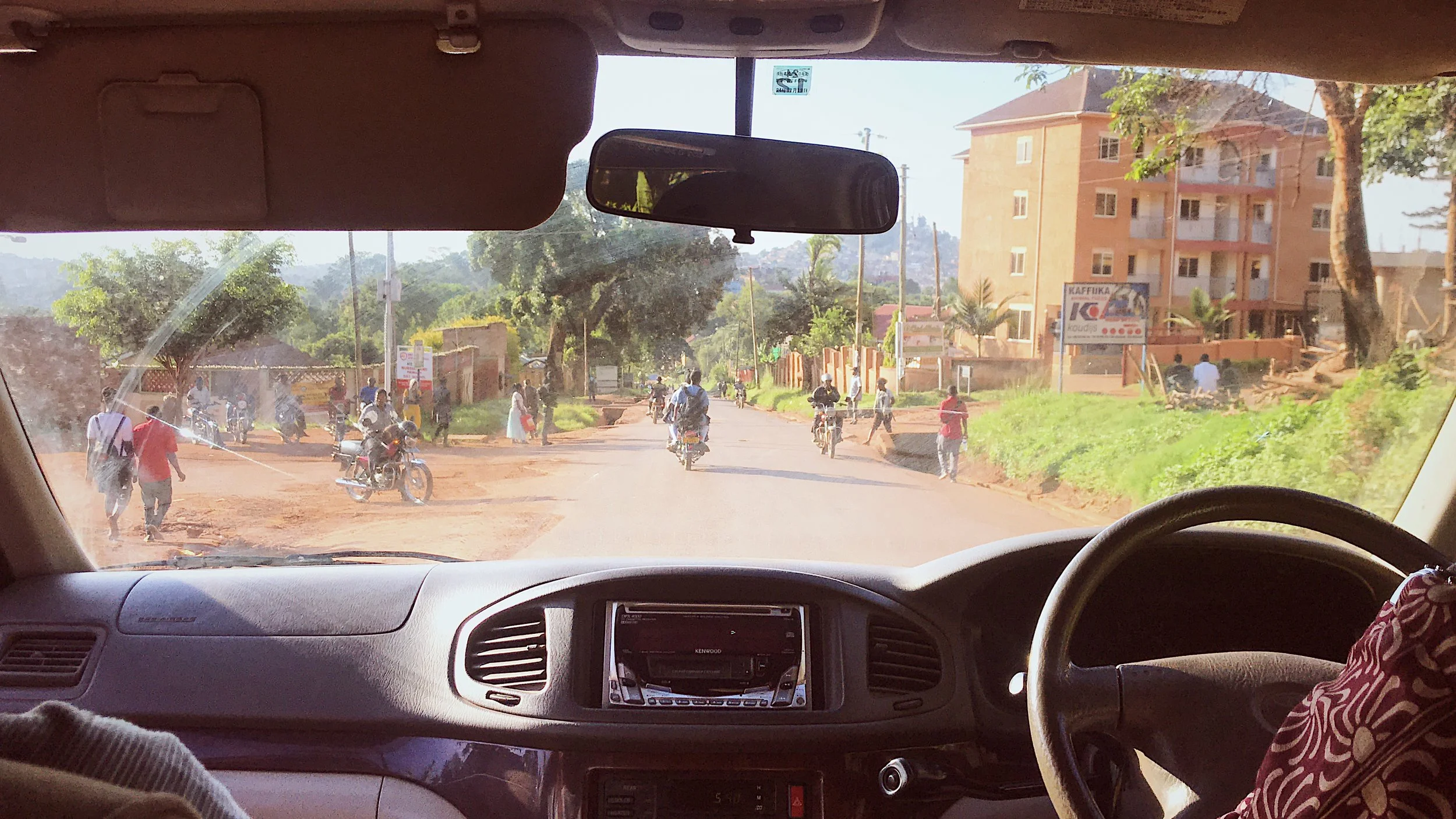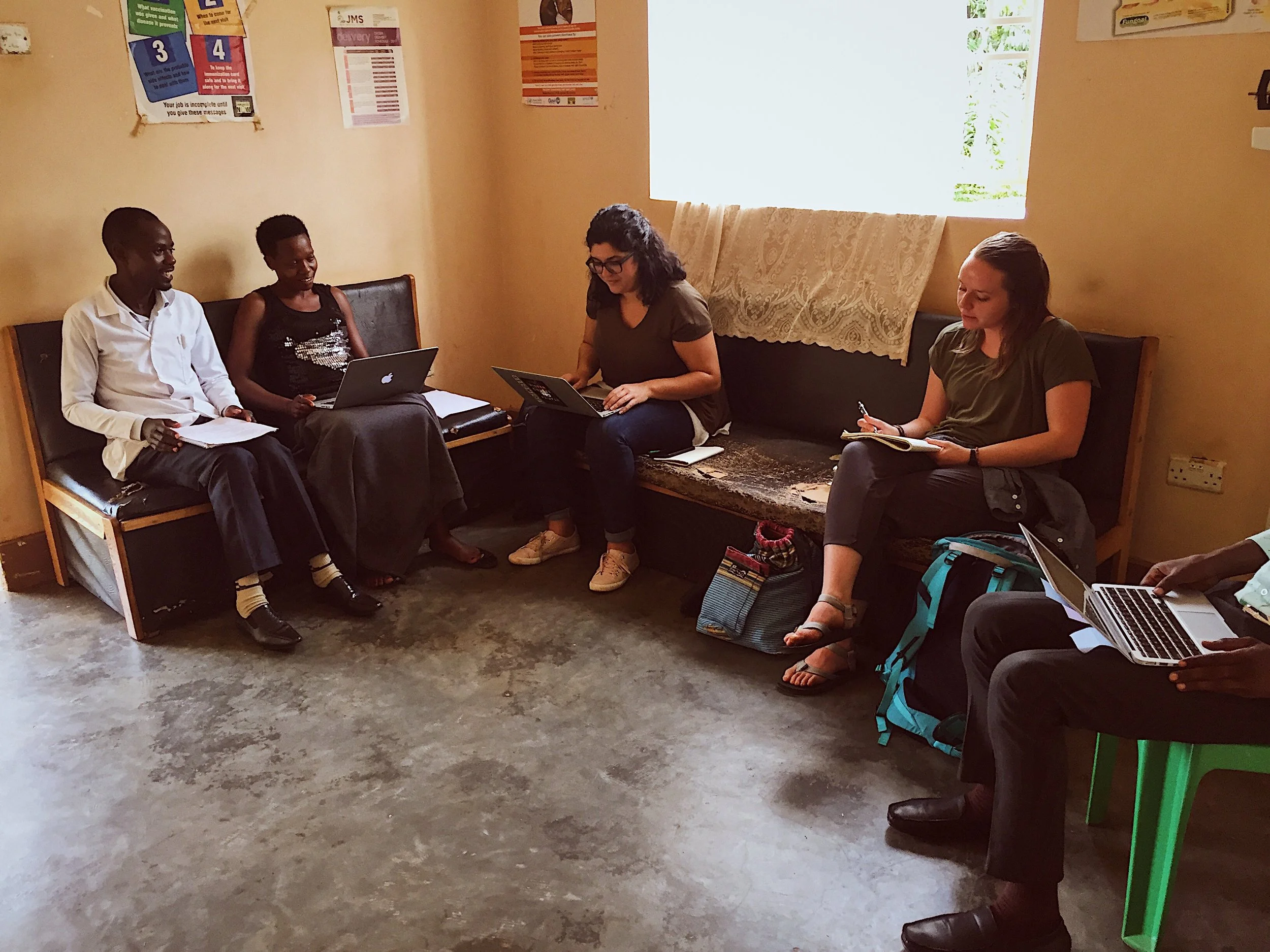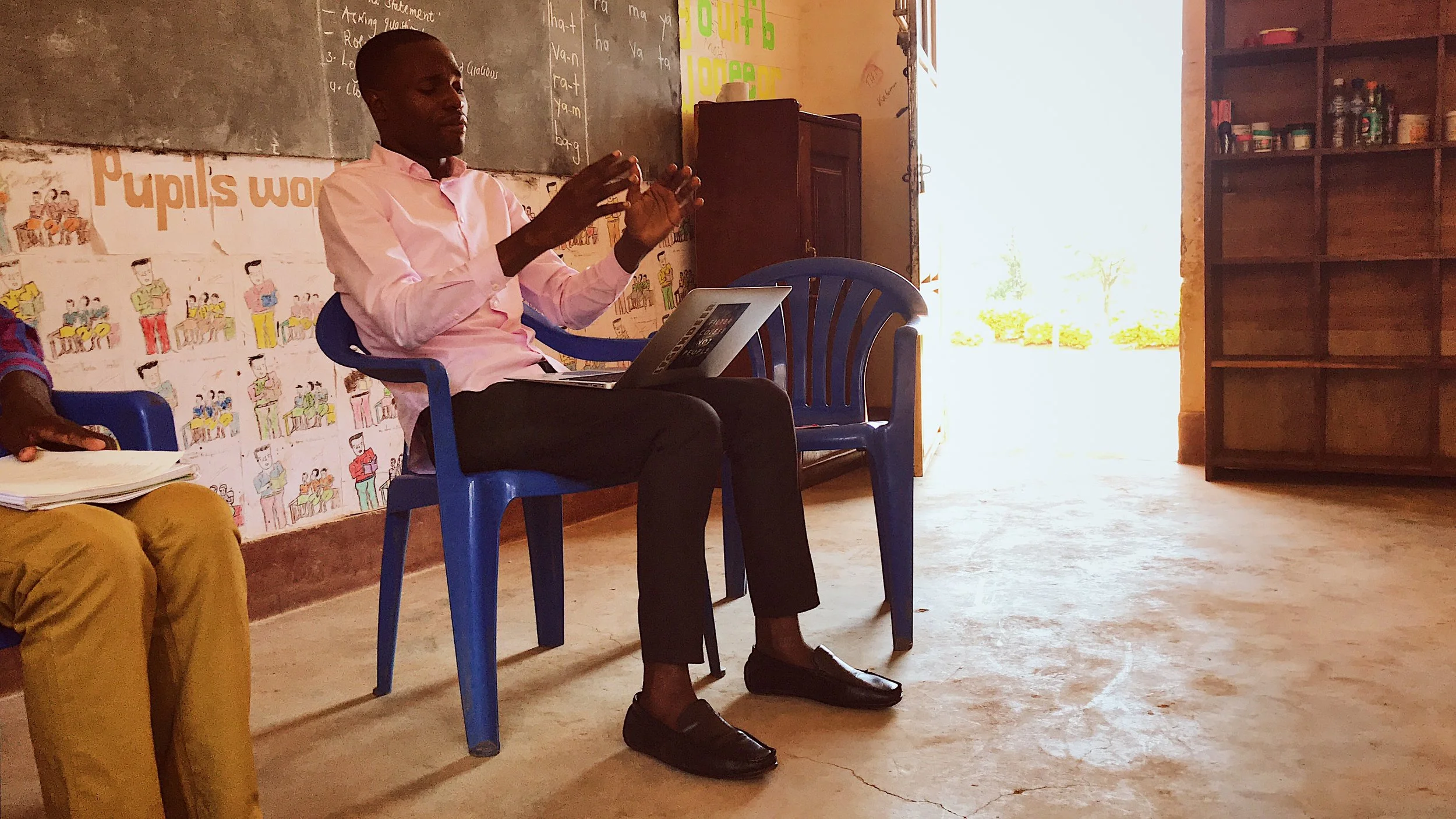Uganda | The Start
Uganda Health Together March 2019 Blog 1
Health Together is a year long initiative with local partners to implement health education programming for the purpose of preventing disease in Uganda. To start this project, I spent the month of March conducting surveys and health education trainings in three primary schools, a medical clinic, and the community with American and Ugandan team members. We desire to see health in the community of Bombo improve through this increase in education promoting healthy habits.
This is the first of a handful of blogs recounting the project and my experiences living in a small town, lovingly characterized as “the jungle” by locals, for four weeks. Sign up here to receive email updates when new blogs are released.
Day 1
After disembarking the plane, reading all the signs about Ebola safety, going through customs, retrieving our luggage, and going through more security, we finally made it outside of Entebbe International Airport into the familiar hot sun. A slender man in a pressed white shirt was shading his face with a sign that read, “Adams Brooke,” written in pink Sharpie.
“Hello Adams, welcome to Uganda!” We made our way toward the parking lot, Sam the driver pushing my luggage cart and me guiding Hannah from tipping over the curb with hers. Uganda is sensory overload at every corner and the airport is no exception. Just ahead of us was a group of older women smartly dressed supporting one of their own who appeared almost unable to walk. This woman cried out, “Jesus, why have you forsaken me!” before continuing to sob loudly as her compassionate caravan led her through the crowds.
“This is how we mourn in Uganda,” said Sam. “Do you cry for the dead in America?”
“Yes, we do,” I replied as we arrived at his small car. It was a sedan, but definitely on the smaller side. In true Ugandan fashion, no problem is unsolvable. Sam managed to fit three people, two pieces of luggage, two tubs, and two backpacks in his car with majority of this list not in the trunk. We sped off toward Kampala, windows down, billboards of MTN Mobile and Beyoncé passing by. As Sam spoke of current events in Uganda, I thought of two main things.
No matter how different places are, we as humans are the same. We cry for the ones we’ve lost, we follow pop culture, and we hope for positive change. We listen to music and click our tongues at traffic and youth movements spring up. When we realize this, the barriers fall, our ability to listen well increase, and natural conversations and friendships occur.
Uganda
Day 2
Just because there is Uber in a country, does not mean the Uber drivers know how to read a map on a phone. Uganda taxi drivers generally run on learned knowledge of city streets, so the greatest criticism of these mobile ride apps is drivers who do not know the streets have map apps which do not even account for all streets, and therefore these drivers cause traffic problems.
Traffic was a common theme of the day. From the hotel to the embassy, cars moved at the typical hurry up and wait pace. So, we rolled into the embassy late, went through two security check points, walked quickly into a building, went through another security point, and finally arrived in the Ambassador’s office. Despite an abbreviated time to meet due to this, Ambassador Malac graciously listened to us explain the relationship between our local partner and the Health Together project.
She in turn explained the relationship between the US Embassy and the Ministry of Health. It was fascinating to understand different governing bodies priorities regarding health in Uganda. Ambassador Malac affirmed the importance of having local leaders such as our Uganda pastors who also attended the meeting, spearheading public health efforts as they are on the ground and able to best connect with their community. It was nice to hear from respected leaders that your work is valuable and important.
After the Ambassador left for her next meeting, we met with two representatives from USAID, the US Government’s international development agency. This was a welcomed addition to our time. To me the most beautiful thing was watching our local pastors, Alex and Millie, demonstrate their knowledge of health in their community by asking questions and then all of us as a team critically thinking about how to implement new ideas from USAID into Health Together.
After an hour of conversation, we walked out into the setting sun, excited about the coming weeks of Health Together. At the end of the day, I was wholly thankful for the way events played out despite it being different than I had planned. I am confident there will be more plans changing and adjusting, things falling through, and new things arising over the next few weeks. Through it all, we believe we are part of a legacy to impact the next generation. The leaders will hold the broken pieces of their country in one hand and wisdom in the other. This is what we believe in; this is what we are hoping for.
At Endiro Coffee in Kampala
Day 3
Today was day one in the town of Bombo where we are working. We met with clinic staff to discuss rallying volunteers for community surveys, getting local official approval, and thinking through with the clinic the best ways to provide health education. Then, we met with Pastors Alex and Millie to discuss the outcomes of the conversation with the clinic, determine next steps for the health education at the schools, and how to implement of the feminine hygiene training for women leaders.
We were standing outside in the shade when the school released for lunch time. A number of the children I have become friends with over the past few years came up to greet me with the standard, “Good afternoon” and a hug. Millie introduced me to a teacher and said, “Do you know Brooke?” And she replied, “Yes, I know Brooke, she is an African!” It always feels like coming home when I come to Bombo. Many times throughout the day people thanked me for returning, saying it means so much when I come back again.
My reply is always, this is family. This is why I believe in this project, because those in Bombo are family. I have served alongside them for the past three years and will continue to serve alongside them in this project. They are the ones telling our team the needs, the factors contributing to poor health, and expressing hope health will continue to improve. They are the ones leading this saying, “It will succeed.” We’re all believing long-term education has the power to change things.
Driving in Uganda
Day 4
The majority of our morning and afternoon was spent working on the community survey. The purpose of this is to understand the knowledge and norms of health in the Bombo community so resources can be effectively implemented, especially for hypertension and feminine hygiene. After revising the survey this morning based on the conversation with the clinic yesterday, we came back together this afternoon to discuss further.
With LMC’s thoughtful insight, we adjusted questions to more accurately capture what we desire to learn in the local context. While this process was long and grueling, I truly enjoyed it and learning for local experts about health in Uganda.
Working with the clinic staff
Day 5
Today we held a training for the volunteer who will conduct community health surveys.
One of my favorite sounds is listening to conversations in Luganda. As the volunteers discussed, they would laugh and joke about possible ways of asking. The volunteers were very committed to ensuring the survey will be done with excellence. Every time I come to Uganda, I pick up a few more Luganda words. As with any language, there are words with meanings untranslatable. Often someone said, “I don’t know how to express this in English,” which is so beautiful to me.
Words steeped in culture cannot simply be swapped with an equivalent English, so how do you express the feeling or complexity of that comes with a word? Immersion into things like language, daily habits, meals, or local businesses with the perspective of observing culture takes what may appear fundamentally foreign and turns it into something colorful and deep.
Refining the survey with LMC and the volunteers has provided further insights to health norms in Uganda. One doctor explained how someone might say they feel “running in their chest” to describe the feeling of their heart beating quickly. Or, some years ago people said of those with asthma, “you swallowed a cat” because of the wheezing sounds that comes with breathing. Our team emphasized writing “running in their chest” or things of that nature are what we want to see on the surveys, not what surveyors think someone is saying. In a country conditioned to get the right answer always, this was a key point for the training.
Everyone worked together for this common goal easily. In Uganda, I am always moved by the collective nature of life here, the way people are bound up with each other in everything.
Shouldn’t I be more concerned about the conversation in front of me than the next item on an agenda? Shouldn’t time to sit and talk long after plates have been cleared be a normal occurrence? I’m staying up for conversations then working late, rising early with the sun to reflect before running headlong into a full day with people and projects. It simultaneously exhausts me and fills me with life.
Volunteer training





